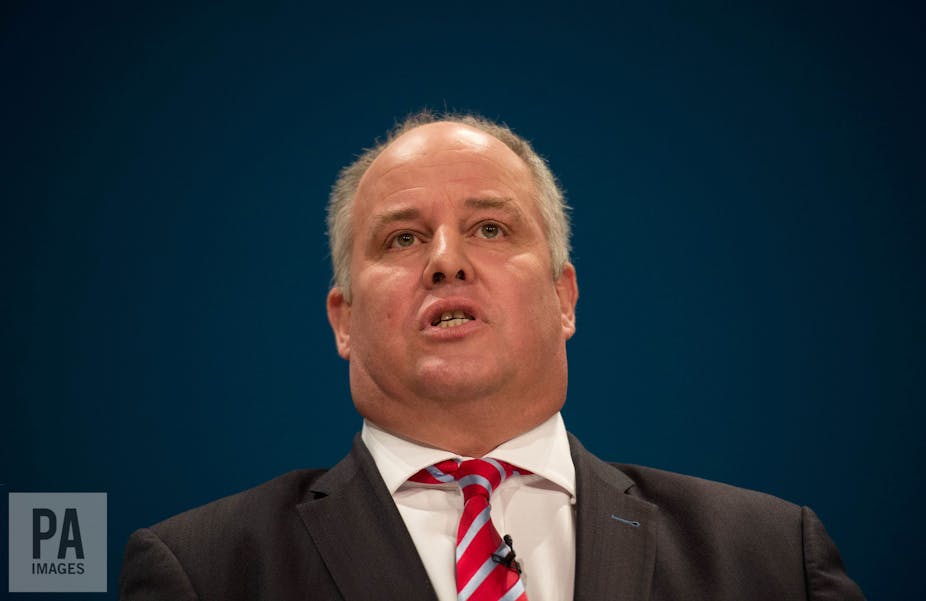Conservative campaigners are sure to tell you that the party can provide the “strong and stable” government that they have been promoting. But tensions are simmering under the surface – and no less so in Wales.
Allegedly, an argument has erupted right at the top of the Welsh Conservative Party in the run-up to the general election. The Secretary of State for Wales, Alun Cairns, and the leader of the party in Wales, Andrew RT Davies, were supposedly at odds as to who was meant to be representing the Tory cause in television debates. In one, neither did, leaving the relatively unknown – although competent – assembly member for Clywd West Darren Millar to fill in.
Although both Davies and Cairns have gone out of their way to deny any rift, this supposed spat nonetheless shines a light on the slightly odd structure of political parties post-devolution, and the now reduced status of the Secretary of State – which was always a junior cabinet role anyway. It is also indicative of wider Conservative concerns ahead of what was meant to be the party’s historic and earth-shattering election in Wales.
In many respects, it is remarkable that there haven’t been more noticeable spats and disagreements within political parties this election. As Brexit demonstrated for the Conservatives, and as the rise of Jeremy Corbyn signalled for Labour, parties can remain broadly “united” and together even if many of their key figures profoundly disagree on fundamental issues.
But when arguments do bubble over into the news, they naturally draw attention and speculation about the key figures involved. Davies is a difficult character to assess, and so is the kind of appeal he has to the wider Welsh electorate. Some will certainly view him – for better or for worse – as a bit of a “bruiser”. But he is a different kind of man and politician to both his predecessors as leader of the Welsh Conservatives, and certainly to the kind of senior Conservative figures in Wales in recent history.
Representing Wales

Before devolution, the most senior governmental figure in Wales was the Secretary of State. The Conservative Party during its long reign from 1979-1997 fielded a succession of figures who were mostly, although not in all cases, English MPs representing English seats. Nicholas Edwards was a notable exception, although a very aristocratic air hung around him.
The leaders of the Welsh Conservatives since the establishment of the National Assembly have been markedly different. After his short tenure, Rod Richards – who was popular with many grass-roots Conservatives in Wales – was replaced by the genial Nick Bourne. The latter was considered to have dragged the Conservative Party successfully into an era of devolved Welsh politics, while somehow “softening” its image.
Davies, meanwhile, Bourne’s successor, is a Welsh farmer, who looks and sounds slightly different to anyone else who has occupied his position before. But he looks and sounds like a lot of people who make up the core Tory vote in Wales: rural, agricultural, comfortably off, Brexit-supporting.
Two leaders
However, Wales still has a Welsh Secretary of State, although with the position of First Minister firmly established, as well as specific leaders of the Welsh political parties, the role has been diminished – both in a policy and a presentational sense. This will certainly be part of what lies behind the recent supposed spat regarding Mr Cairns and Mr Davies.
It will be unclear to many voters who exactly the “main” Conservative in Wales is. Who speaks for the party in Wales, or the government – and does that matter? Who is the more senior figure, and how is that defined?
My sense is that this supposed falling out will remain relatively peripheral, and won’t impact too much on the Welsh Conservative’s election results. But gone are those heady days when polls suggested that the Conservatives would change the course of a nation’s political history.
Those polls could have been a fluke, or, on the other hand, all of 2015’s “shy Tories” and some new friends, could be about to surprise the nation. But, again, I sense that the momentum in Wales for the Conservatives has stalled in the same way it has nationally – symptoms of two very different kinds of party campaigns. “Welsh politics” is, in many senses, a version of British politics, but with different shares of the vote; patterns and trends tend to be similar.
Sensing a mood shift, local Labour Party activity in places like Gower – which the Conservatives won for the first time in 100 years with a margin of 27 votes in 2015 – has stepped up recently. There seems to be a renewed sense that the party could even take back such constituencies, although the Conservatives should be trying very hard to retain it, and win others like Wrexham.
Ultimately, the recent rift may not affect the overall result, but it could be symbolic of the uncertainty surrounding the still precarious position as Wales’ “second party” that the Conservatives occupy.

